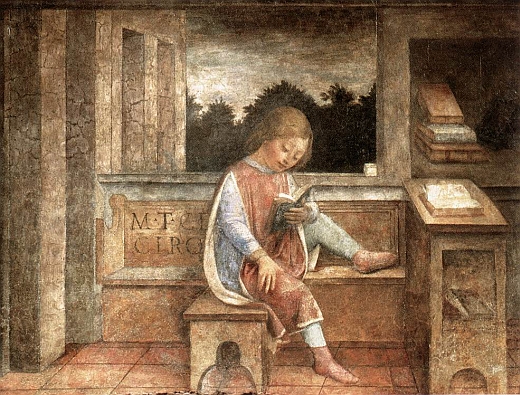
Cumque plurimas et maximas commoditates amicitia contineat, tum illa nimirum præstat omnibus, quod bonam spem prælucet in posterum, nec debilitari animos aut cadere patitur. Verum etiam amicum qui intuctur, tamquam exemplar aliquod intuetur sui. Quocirca et absentes adsunt et egentes abundant et imbecilli valent et, quod difficilius dictu est, mortui vivunt; tantus eos honos memoria desiderium prosequitur amicorum, ex quo illorum beata mors videtur, horum vita laudabilis.
Even while understanding that friendship includes a great number of important advantages, it must be said that it excels all other things in this respect: that it projects a bright ray of hope into the future, and upholds the spirit which otherwise might falter or grow faint. He who looks upon a true friend, looks, as it were, upon a better image of himself. For this is what we mean by friends: even when they are absent, yet they are with us; even when they lack some things, still they have an abundance of others; even when they are weak, in truth they are strong; and hardest of all to say, but also most deeply felt: even when they are dead, in truth they are alive with us, for so great is the esteem of a true friend, the tender recollection and the deep longing that still abide with them.
—Marcus Tullius Cicero, De amicitia, lib. vii (ca. 45 BCE) in the Loeb edition of the works of Cicero, vol. 20, p. 132 (S.H. transl.)


